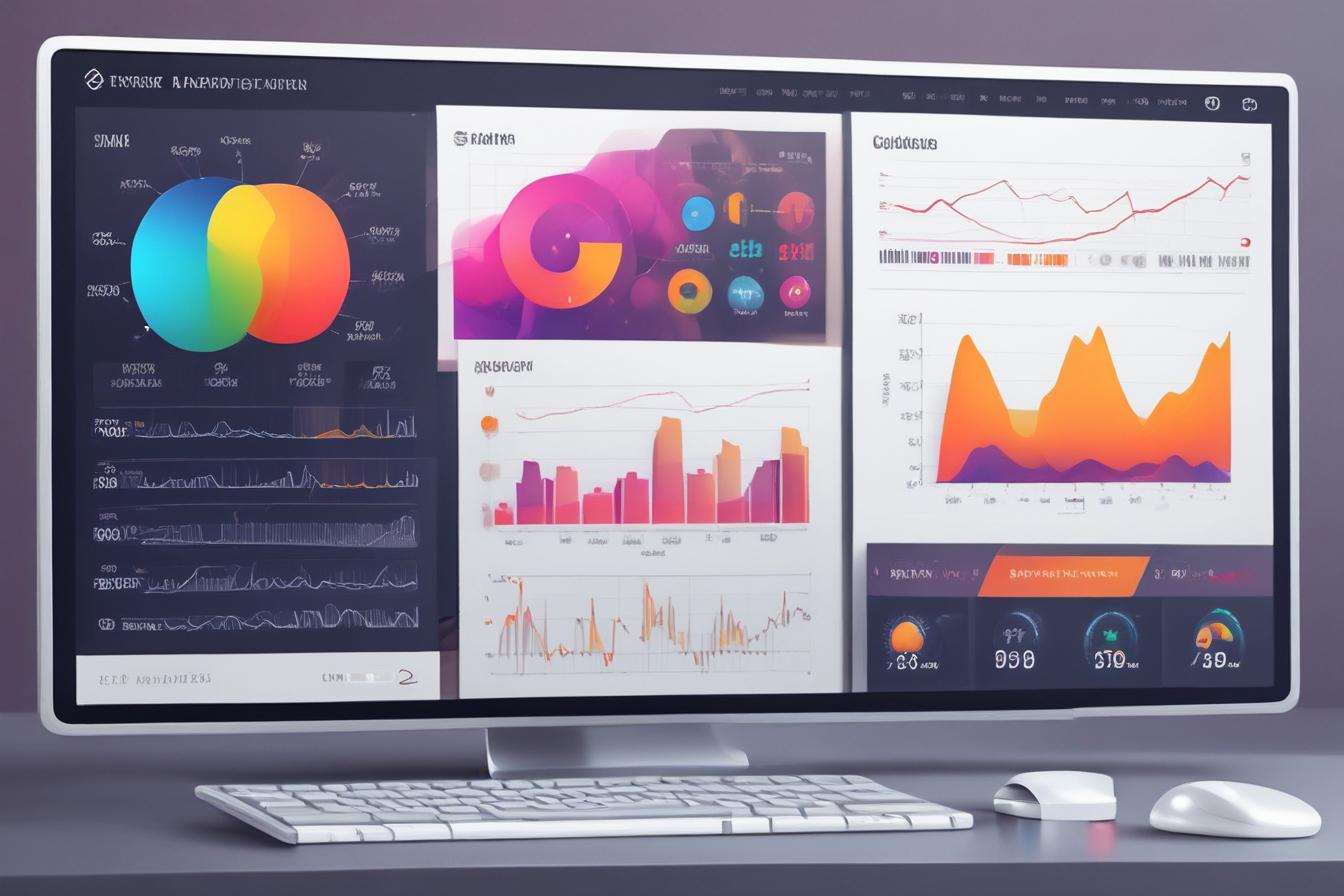In today’s digital landscape, content is king – but creating compelling and engaging content is only half the battle. For businesses striving to rank higher on Google and drive more organic traffic, optimizing that content for search engines is crucial. Enter dashboard content SEO – a strategic approach to crafting and optimizing website content to improve visibility and drive better results.
What is Dashboard Content SEO?
Dashboard content SEO is the practice of optimizing website content, particularly on data-driven dashboard pages, to rank higher on search engine results pages (SERPs) for relevant keywords and queries. It involves a combination of on-page, technical, and user experience strategies to ensure that your content is easily discoverable, engaging, and tailored to both user and search engine needs.
Types of Dashboard Content
Dashboard content can encompass a variety of pages and data visualizations, including:
- Analytics and reporting dashboards
- Project management and task tracking dashboards
- Financial and sales dashboards
- Marketing and social media dashboards
- Customer support and helpdesk dashboards
Key Elements of Dashboard SEO
Effective dashboard content SEO involves optimizing several key elements, such as:
- Title tags and meta descriptions
- Headings and content structure
- Internal and external linking
- Image alt text and file names
- Page speed and technical performance
- User engagement and interaction
Why Dashboard SEO Matters for Your Business
In an increasingly competitive digital landscape, ranking well on Google for relevant keywords can make or break a business’s online success. By optimizing your dashboard content for search engines, you can:
Increase Organic Traffic and Visibility
Higher rankings on Google translate to more organic traffic to your website, increasing your brand’s visibility and reach.
Improve User Engagement and Conversion
Well-optimized dashboard content provides a better user experience, leading to increased engagement, lower bounce rates, and higher conversion rates.
Gain a Competitive Edge
As more businesses prioritize SEO, those that invest in dashboard content optimization will gain a significant advantage over their competitors.
Save Time and Money
By utilizing a tool like ContentScale.fr, you can generate SEO-optimized dashboard content at scale, saving you both time and money compared to hiring a dedicated SEO agency or content writer.
On-Page Optimization for Dashboard Content
On-page optimization is the foundation of effective dashboard content SEO, ensuring that your pages are structured and optimized for both users and search engines.
Keyword Research and Targeting
Start by identifying relevant keywords and phrases that your target audience is searching for, and incorporate them naturally throughout your dashboard content.
Title Tags and Meta Descriptions
Optimize your title tags and meta descriptions to accurately and compellingly describe your dashboard content, while including relevant keywords.
Headings and Content Structure
Use a logical and hierarchical heading structure (H1, H2, H3, etc.) to organize your content and improve readability and scannability.
Internal and External Linking
Strategic internal and external linking can improve your dashboard content’s authority and relevance, while enhancing the user experience.

Technical SEO for Better Dashboard Rankings
While on-page optimization is crucial, technical SEO factors also play a significant role in how your dashboard content performs on Google.
Page Speed and Performance
Optimize your dashboard pages for faster load times and better performance, as this is a key ranking factor for Google.
Mobile Responsiveness
With an increasing number of users accessing the web on mobile devices, ensuring your dashboard content is mobile-friendly is essential.
Structured Data and Schema Markup
Implementing structured data and schema markup can help search engines better understand and display your dashboard content in rich results.
Site Architecture and Navigation
A well-structured and easily navigable website can improve user experience and make it easier for search engines to crawl and index your dashboard content.
User Experience and Dashboard Content Engagement
While optimizing for search engines is crucial, it’s equally important to ensure that your dashboard content provides an engaging and valuable experience for users.
Content Quality and Relevance
Prioritize creating high-quality, relevant, and informative dashboard content that addresses your target audience’s needs and pain points.
Visual Appeal and Data Visualization
Enhance your dashboard content with visually appealing and easy-to-understand data visualizations, charts, and graphics.
Interactive Elements and Engagement
Incorporate interactive elements, such as calculators, quizzes, or polls, to increase user engagement and time on page.
Clear Calls-to-Action (CTAs)
Include clear and compelling CTAs throughout your dashboard content to encourage users to take the desired actions, such as signing up for a trial, downloading a resource, or making a purchase.

Measuring and Tracking Dashboard SEO Success
Regularly measuring and tracking your dashboard content’s performance is crucial to understanding what’s working, what’s not, and where improvements can be made.
Key Performance Indicators (KPIs)
Define and track relevant KPIs, such as organic traffic, bounce rate, average time on page, and conversion rates, to gauge the effectiveness of your dashboard content SEO efforts.
Google Analytics and Search Console
Leverage tools like Google Analytics and Search Console to monitor your dashboard content’s performance in search results, identify areas for improvement, and track your progress over time.
Competitor Analysis
Regularly analyze your competitors’ dashboard content and SEO strategies to identify opportunities and stay ahead of the curve.
Continuous Optimization and Improvement
Use the insights gathered from your performance tracking and analysis to continuously optimize and improve your dashboard content SEO strategy.

In conclusion, dashboard content SEO is a powerful strategy for businesses looking to increase their online visibility, drive more organic traffic, and engage their target audience. By optimizing your dashboard content for search engines, ensuring a seamless user experience, and continuously measuring and improving your efforts, you can gain a significant competitive advantage and achieve long-term success in the digital landscape. Don’t miss out on the benefits – start optimizing your dashboard content for SEO today, or consider a tool like ContentScale.fr to streamline the process and generate high-quality, SEO-optimized content at scale.
